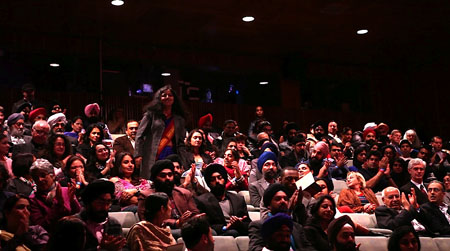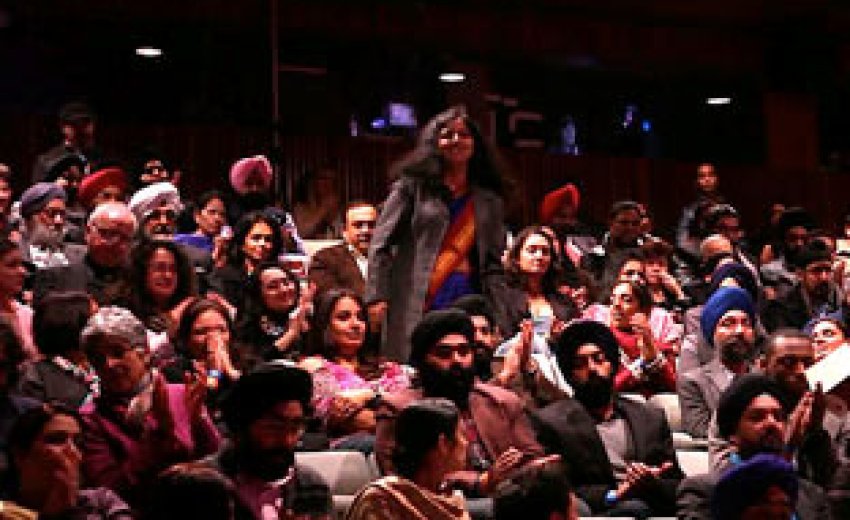A SPECTATOR SPORT

February 2, 2015: As a moderately devoted fan, each season I spend many a fruitless hour in front of the TV watching American Football.
It is not a game I play at all or understand all that well. I have been watching it sporadically for better than five decades, but have made little attempt to learn its intricacies. Even the fundamentals mystify me; then why do I watch it so incessantly.
The television culture promotes spectator sports. Get your bag of popcorn or potato chips, a six pack of beer or soda, with the remote in hand plop yourself in a comfortable chair in front of the tube, and let your fingers do the walking.
It doesn't have to be an addiction to football. Other pastimes that I can personally pursue with a modicum of skill and pleasure, such as tennis or squash, would do just as well. I can then survive or pursue anything or any activity - from the debacle in Iraq and Syria to the "American idol" without moving a major muscle or possessing any measurable skill. A minimal engagement is demanded of the body or mind.
Wouldn't it be reasonable then to label such a life largely "a spectator sport?"
What higher duty defines citizenship than participation in the political electoral process of his or her neighborhood, city, state and country? But news reports tell us that citizen participation continues to decline, while the numbers of so called experts and talking heads on the tube proliferate exponentially.
In a nation of believers, what clearer calling can there be than to participate in matters of one's religion? Again, statistics tell us, church attendance keeps falling even while the numbers of those who profess a belief in their religion keep climbing. There is a growing abyss between professed belief and its practice. So, both our religious as well as civic life may be on the irreversible path of becoming not much more than a spectator sport.
I am embarrassed to admit that my "aha" moment that life was being inexorably reduced to a spectator sport happened not because of some talking heads on television, but while sitting in a gurdwara listening to a pretty good sermon.
I can see that complex ideas are at the core of our civic and religious lives. It is not difficult to discern how the complex administrative hierarchies of religions evolved and that they exist to assist the followers in their voyage of self-discovery. But haven't the professionals of religions reduced the disciples to the role of passive followers, nay, spectators of their own faith?
Let me draw my evidence largely from my own faith -- Sikhi - though I believe that most of the older established religions are not much different in this matter. The longer they have been around more is the rot that seems to have set in.
Most people visit their favorite places of worship, sit through the sermon and liturgy, pay the requisite donation, and come home feeling smug that, once again, they have been absolved of their sins. The visit next week will wash away whatever new grime we/they accumulate over the week.
When good Christian friends of mine argue that the return of Latin mass would be good, I wonder what they mean, because they understand not a word of Latin. When they insist that only an ordained priest can consecrate the bread at Communion or say the Mass, I wonder if it further diminishes the ordinary follower.
In these matters, Sikhs are no different. But it was not always thus.
Not so long ago, a Sikh religious service at someone's home was put on hold for several hours because the performing granthi had been inordinately delayed, and a pastoral alternative was not easily available. I suggested that we could function just as well without one, and that there was no function that only the clergy could perform while a lay Sikh - man or woman -- could not. But people looked at me as if I had committed blasphemy or, at the very least, a grave social faux pas.
I remember that, not so many years ago, in small community gurdwaras, particularly, outside India, the entire service was conducted by lay people; there were no professional granthis or ragees available. Now I see that speakers and ragees (liturgical singers) at gurdwaras are, more often than not, professionals. They do their job and the congregation sits through another day of service.
I wonder if many in the audience (I hesitate to label them a congregation or sangat) remember even one line of a hymn that was sung, or the theme of the sermon! Sometimes I am tempted to poll the outgoing congregation at the end of the service and ask them exactly such questions. But my friends wisely dissuade me from such foolishness. Also, I wonder how I would answer, if the questions were asked of me, and that stops me cold.
However, the gurdwara thus becomes the domain of the granthi and no longer a place of the people.
Sikhism tells me that a gurdwara comes alive into existence when Sikhs of the Guru collect to have a conversation with the Guru -- perhaps once in the early morning and once in the evening nearer supper time, sometimes more often. Joining a Sikh religious service then becomes and remains an inner dialogue of the mind and heart, but one that surely changes a Sikh's persona.
Remember that where Guru Granth provides the treasure trove and the direction, the keertan (liturgical music) and kathaa (discourse) provide the technology for a Sikh's path.
But I look around in our modern gurdwara and many in the congregation sit silently. Are they lost in their own thoughts and travails or is it that they may not understand what is being sung or said. Perhaps they do not speak the words, for they know not the language or what the words mean. Predictably then, the mind wanders elsewhere. How then can there be dialogue and engagement with the Guru?
 The only aspect of the Sikh religious service that has not yet gone the way of a spectator sport is the community meal (langar) served at the end of each service; it is still largely prepared by volunteers. But the volunteers are few --- far fewer than the number of the attendees -- and in many affluent gurdwaras, I see a growing trend of catered meals.
The only aspect of the Sikh religious service that has not yet gone the way of a spectator sport is the community meal (langar) served at the end of each service; it is still largely prepared by volunteers. But the volunteers are few --- far fewer than the number of the attendees -- and in many affluent gurdwaras, I see a growing trend of catered meals.
Also, our gurduaras mostly function by a management model that solicits or encourages minimal, if any, input and participation by the sangat. For the average gurduara goer, matters of gurduara management remains a black box - better left unopened.
In the 1960's there was great turmoil in the Roman Catholic Church. Prior to that period, the Mass was always in Latin. Clearly, for the average believer there was more magic and mystery than understanding to the Roman Catholic rites. The result was the emergence of the Mass in the vernacular. That was the doing of Pope John XXIII. Then came the time of Benedict XVI who preferred Latin and thus majesty over understanding.
Are we Sikhs going to wage similar battles, between the immigrant-Punjabi Sikh who viscerally rejects the use of any language but Punjabi in the gurdwara, and those who have grown up outside Punjab or are from varied ethnic backgrounds? This might seem shocking, but it is true. I have been at the receiving end of such edicts and demands at many gurdwaras in North America: they brusquely commanded that only Punjabi be spoken within the gurdwara premises during services. (I hope to deal with this another time.)
Come to think of it, ordinary Sikhs in the modern gurdwara have very little to do. Most Sikhs never even learn the names of the Gurus in sequence, nor do they know how to recite the basics of our liturgy and service or its purpose. The reason is simple: every meaningful activity is performed by the clergy and the average Sikh just sits as a silent spectator, hardly ever a participant. And all this is happening in a religion, which has no formal requirements or need of an ordained clergy because it is indeed a religion of lay people.
Since any religion is, in the final analysis, a way of life, it is self-evident that it has to be a "Do It Yourself" model of activity. The onus, thus, is on the follower. Whence all the ministers, priests rabbis, mullahs, granthis and pandits - shamans all?
Though born a Hindu, Guru Nanak was equally tolerant of Hinduism and Islam, and just as equally dismissive of the foibles of both. Had there been a sizeable distribution of followers around from other faiths like Christianity I am sure his attitude would have been equally inclusive or dismissive of their ways as well.
A widely told parable from his life speaks of a time when Guru Nanak was challenged by a Muslim Qazi to prove his open-mindedness by participating in Muslim prayer at the local mosque. Nanak agreed, but at the stipulated time during prayer declined to stand with the local satrap and the Qazi.
When asked to explain, Nanak's response blew his questioners away. He reminded them that their minds were not on God - one was rehashing in his mind a business deal for the purchase of some Arabian horses, the other was preoccupied with the fate of a newborn calf at his farm who might have wandered off near an unguarded well. To them, like to many, religion had become a ritual and a spectator sport.
Watching someone else run a marathon is not going to endow anyone with the skill or the fortitude to complete the run.
A building does not a gurdwara make; it is people who transform the building into a gurdwara.
How then is ordinary human clay to become a Sikh in our modern gurdwaras?
Now for a bit of tautology: Religions define a way of life. When we reduce religion to a spectator sport, what then does life become?
